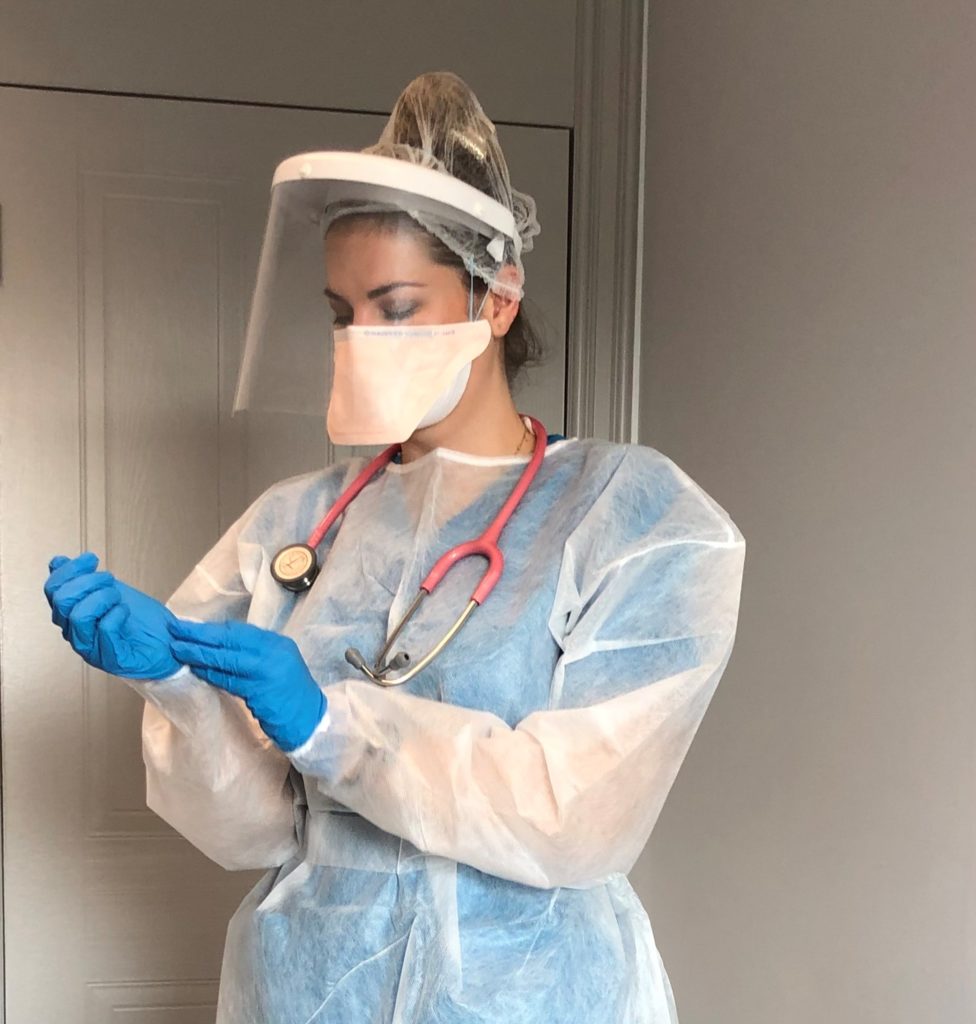A young doctor faces the reality of antibiotic resistance during COVID-19
For young South African doctor Chelsea Kruger, working in a COVID-19 ward at the height of the first wave of the pandemic was compounded with the frightening reality of an outbreak of an antibiotic-resistant bacterial infection. Klebsiella pneumoniae spread through the COVID-19 intensive care unit in a Johannesburg hospital where she was based.
“We were already facing an uphill battle with COVID-19. Not only were patients battling with the virus, they then had to face a secondary infection on top of it, which could often not be treated because of antibiotic resistance,” described Kruger. “It took COVID-19 to make me realise how crucial it is to have effective antibiotics. After you have depleted all the drugs you have available, and you are on an antibiotic of last resort, you find your patient is resistant to it. That makes you feel so helpless. You have the knowledge and the skills, but not the resources.”

Chelsea Kruger preparing for work in the COVID-19 intensive care unit . Every day, she meticulously changed into full personal protective equipment (PPE). It’s one crucial way to both stop the spread of COVID-19 and keep frontline workers safe. The COVID-19 pandemic has highlighted the importance of measures to prevent and control the spread of infection. It’s also shone a spotlight on the importance of addressing the pandemic of antibiotic resistance.
The textbook theory about antimicrobial resistance she had acquired as a university student only a few years earlier, suddenly became very tangible.
“Although some patients responded very well to the antibiotics that were available, there were some that were very resistant. During that time, more patients were dying than we were discharging. It was often the bacterial infections, rather than COVID, that caused them to fight for their lives, and sadly some didn’t make it.”
Kruger described the challenge of facing a situation when a couple was admitted to the same COVID-19 ICU ward. “The husband was doing really well and his wife seemed to be recovering too, but all of a sudden, she deteriorated very rapidly. She died from an overwhelming sepsis, which was very resistant to the antibiotics we had available. We didn’t have anything to treat her with. It was devastating to tell her husband.”
Kruger said it was vital to develop new antibiotics to prevent deaths from hospital-acquired infections. “Antibiotics save lives, but only if bacteria are sensitive to them. Antibiotic resistance is on the rise, and we urgently need new antibiotics to treat resistant infections. It is about time that we focus on the WHO priority level pathogens, which pose such a great threat to public health. We need to keep bacterial infections treatable.”
The WHO has declared that Antimicrobial Resistance (AMR) is one of the top 10 global public health threats facing humanity.
Kruger said she was very encouraged by GARDP’s work to develop and mobilise for lifesaving treatments for drug-resistant infections. “I’m very excited to know that new antibiotics are in the pipeline. As a doctor, it makes me breathe a sigh of relief to know that there is ongoing work by GARDP to develop antibiotics to combat at least some of these drug-resistant infections, and get them to the people who need them.”
Kruger also said she’d learnt valuable lessons about antibiotic stewardship and the importance of resisting the temptation to prescribe antibiotics when they are not essential.
“Often doctors feel the pressure to prescribe antibiotics, even when they know the patient doesen’t have a confirmed bacterial infection. Patients have grown to expect doctors to prescribe antibiotics. But it can be a big mistake. We need to find ways to ensure we are prescribing the right antibiotics, and only when absolutely necessary.”
Misuse and overuse of antimicrobials are the main drivers in the development of drug-resistant pathogens. Kruger sees a glimmer of hope from her COVID-19 experience, in that people across the world have realized they can play their part in preventing infection.
“Wearing a mask, sanitizing and washing your hands is actually a very selfless act. We want to protect other people from infection. In doing this every individual realizes: ‘I can contribute to the solution. It’s in my hands to do it’.”
She hopes this kind of awareness can be carried forward into preventing more bacterial infections as well, in hospitals and in the community.
Chelsea Kruger is now a research medical officer at the Wits Health Consortium, currently working on a COVID-19 treatment trial.